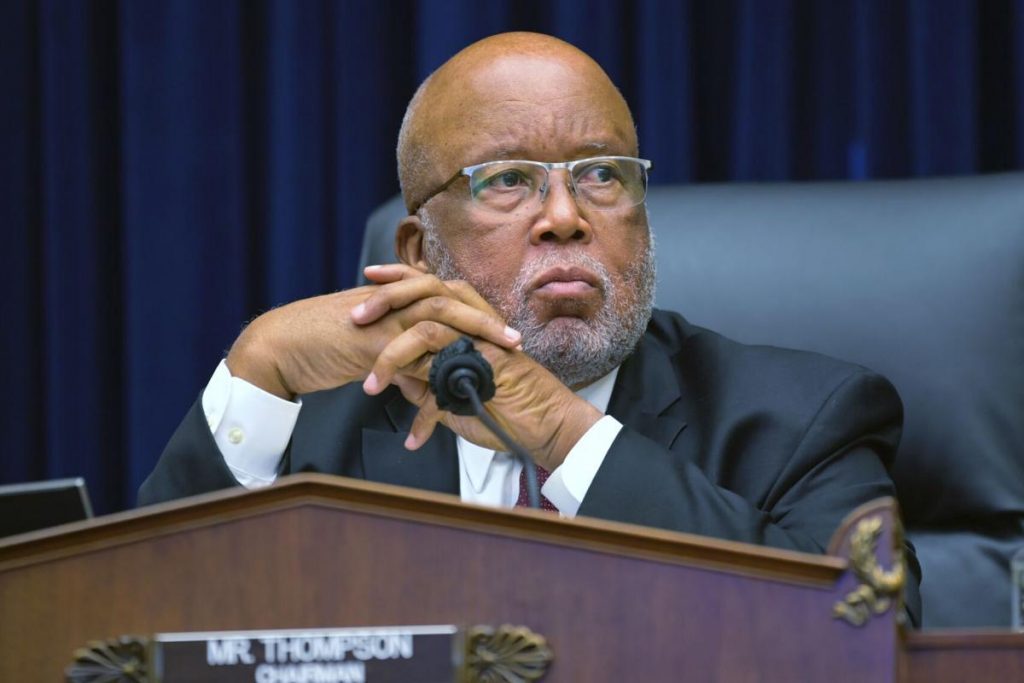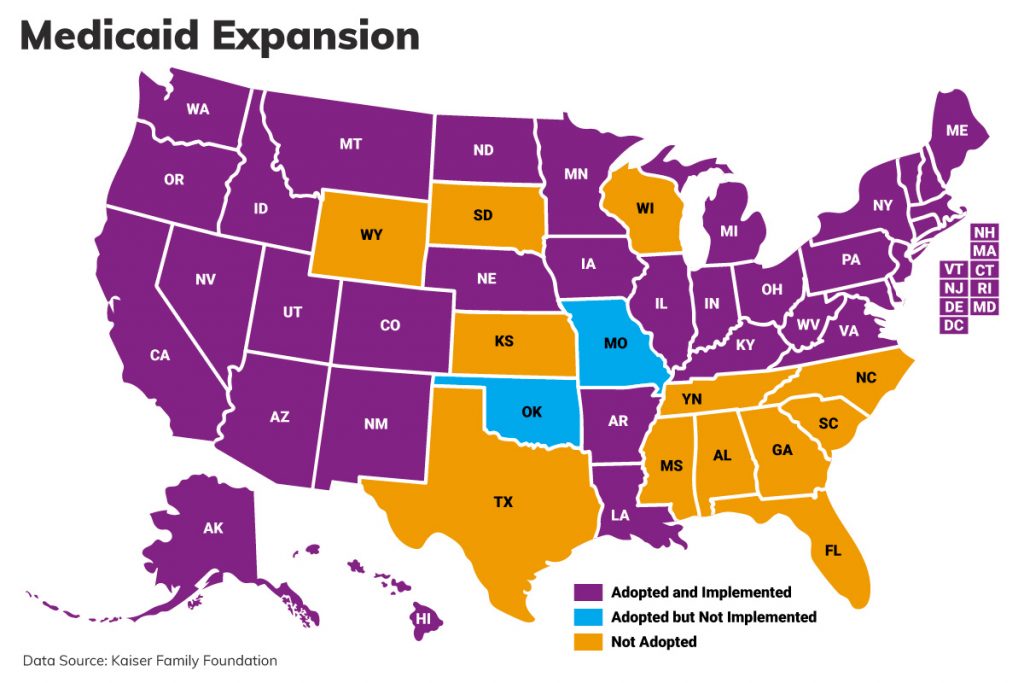Nearly 111,000 Mississippians will keep their health care after the U.S. Supreme Court, for the third time in nine years, rejected an effort by Republican-led states to invalidate the 2010 Patient Protection and Affordable Care Act.
Mississippi Attorney General Lynn Fitch was one of 18 Republican state attorneys general who, last June, asked the nation’s high court to invalidate the entire law, known colloquially as the “ACA” or “Obamacare.” A decision affirming that request would have not only ended coverage for 100,000 Mississippians, but about 31 million Americans nationwide.
“I’m glad to know the Supreme Court of the United States understands the necessity of the Obamacare,” U.S. House Rep. Bennie Thompson, who voted for the law’s creation 11 years ago, said in a tweet after the court announced today’s decision.
The Supreme Court first upheld the ACA in 2012 after Republicans argued that its individual mandate, which required Americans to have some form of health insurance, was unconstitutional; the court said the provision, which some thought necessary for the law to work, was technically a tax penalty and therefore legal.
The high court upheld the ACA again in 2015 with a 6-2 ruling against an attempt to invalidate it over its language about “health care exchanges.”
Arguments Centered On $0 Tax Penalty
In 2017, congressional Republicans attempted but failed to repeal the ACA in its entirety after then-U.S. Sen. John McCain cast the decisive vote against repeal of the ACA. Months later, though, the GOP Congress successfully repealed the enforcement mechanism for the individual mandate, effectively reducing the tax penalty for not having health-care coverage to $0.
Two months later, Texas, joined by other Republican states and backed by then-Mississippi Gov. Phil Bryant, asked a federal court to invalidate the Affordable Care Act, saying that, without an individual mandate penalty, the rest of the law could not stand.
The ACA’s Democratic drafters had included the individual mandate in the 2010 bill, arguing that, because the ACA required health insurers to cover people with pre-existing conditions, healthier people would also need to be required to buy health care in order to avoid destabilizing the markets. In the years since the mandate’s repeal, though, the predicted chaos has not materialized.

The Northern District of Texas agreed with Republicans, with a judge ruling in December 2018 that the ACA was unconstitutional without the mandate. The conservative 5th U.S. Circuit Court of Appeals in New Orleans later affirmed the ruling.
After the September 2020 death of U.S. Supreme Court Justice Ruth Bader Ginsburg, a liberal who had twice voted to uphold the ACA, supporters of the law feared that Trump’s pick to replace her, the conservative Amy Coney Barrett, could doom the law. Under former President Donald Trump, who supported the lawsuit, the U.S. Department of Justice did not defend the ACA in federal court.
Instead, this morning, the court ruled 7-2 that the states challenging the ACA did not have legal standing to bring the case in the first place.
“Plaintiffs do not have standing to challenge (the ACA’s) minimum essential coverage provision because they have not shown a past or future injury fairly traceable to defendants’ conduct enforcing the specific statutory provision they attack as unconstitutional,” liberal Justice Stephen Breyer wrote for the majority in today’s decision.
Barrett and three other conservative justices joined the court’s three liberals in today’s ruling. Two other conservative justices, Trump appointee Neil Gorsuch and George W. Bush appointee Samuel Alito, disagreed with the ruling in a dissent.
“In this lawsuit, as I will explain, Texas and the other state plaintiffs have standing, and now that the ‘tax’ imposed by the individual mandate is set at $0, the mandate cannot be sustained under the taxing power. As a result, it is clearly unconstitutional, and to the extent that the provisions of the ACA that burden the States are inextricably linked to the individual mandate, they too are unenforceable,” Alito wrote in the dissent.
Mississippi ACA Enrollments Grew At Record Pace
In Mississippi, ACA enrollment grew at a record pace in 2020, growing by 12% amid the COVID-19 pandemic. Working Mississippi individuals and families whose income does not fall below the federal poverty level nor exceed 400% of the federal poverty level qualify for subsidies to pay for health insurance through healthcare.gov.
ACA coverage is widely available for those who meet the eligibility requirements during the end-of-year enrollment period. After President Joe Biden reopened the ACA marketplace for a special enrollment period between February and May, 18,175 Mississippians either selected an ACA plan for the first time or changed their plan.
If the state accepted federal money to expand Medicaid, about 189,000 more Mississippians, or 54.2% of the state’s uninsured population, would become eligible for health care coverage through Medicaid. That group includes working Mississippians and families who make too much for traditional Medicaid but not enough for ACA subsidies.

The ACA originally required states to expand Medicaid, but the 2012 U.S. Supreme Court decision that upheld the overall law said that requiring expansion was unconstitutional, making it optional. Mississippi and more than a dozen other Republican-led states initially rejected expansion.
Only 30,000 Mississippians are currently eligible for Medicaid, but expansion would raise that number to 219,000, HHS said in a May 28 report.
If Mississippi expanded the program, the federal government would cover 100% of the costs for the first few years, with Mississippi required to cover 10% of the cost in later years. Since 2013, Mississippi, under former Gov. Phil Bryant and under current Gov. Tate Reeves, has rejected more than $7 billion from the federal government to expand Medicaid.
In 2014, Rep. Thompson, the only Black or Democratic congressman in Mississippi’s congressional delegation, spoke out about the issue on the Lorman, Miss.-based “New Nation of Islam” radio program. He accused Bryant of opposing the ACA and Medicaid expansion “just because a Black man created it.” But Bryant called the ACA a “government takeover.”
“Make no mistake—Obamacare is not about helping those in need or improving health care delivery,” Bryant said after the Supreme Court upheld the law in 2015. “It is about destabilizing our health care system, ceding more control to centralized government and replacing individual liberty with government dependence.”
Reeves, who was the Mississippi Senate president as lieutenant governor before winning the gubernatorial election against pro-Medicaid expansion Democrat Jim Hood in 2019, has repeatedly said he opposes Medicaid expansion, which he calls “Obamacare expansion.”
Other Mississippi Republicans, including current Lt. Gov. Delbert Hosemann, the Senate president, have expressed openness to Medicaid expansion—an idea supported by many of the state’s rural hospitals. Republican Mississippi Sen. Chad McMahan of Guntown said earlier this month that he is willing to consider it.
“I am not taking a position on Medicaid expansion at this time. However, I am willing to have hearings to look at the latest data and results and follow that data wherever it leads,” McMahan said in an op-ed in the Daily Journal. “If it makes sense for the taxpayers and it brings healthcare to all working Mississippians, it’s my duty to at least review and consider the information.”










